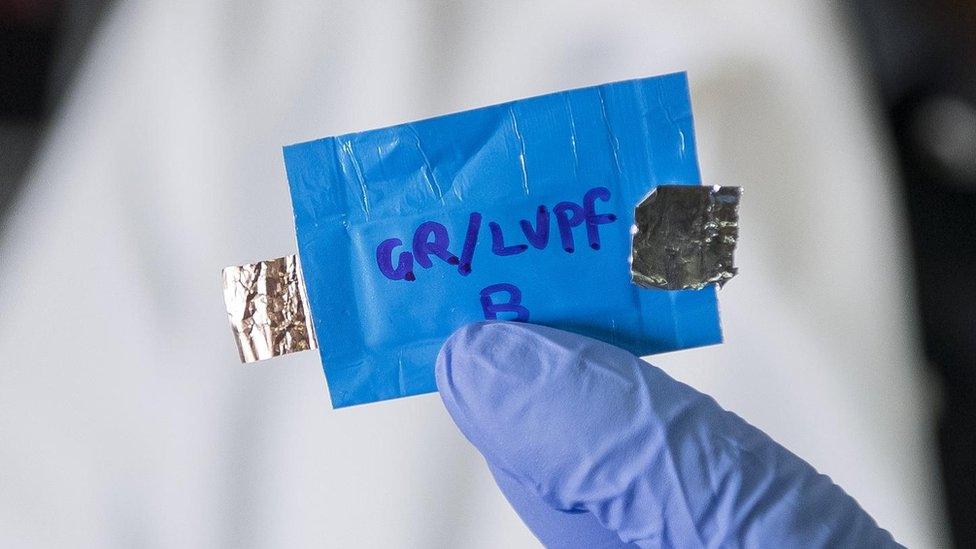CES 2018: Longer-lasting gadgets showcased
- Published
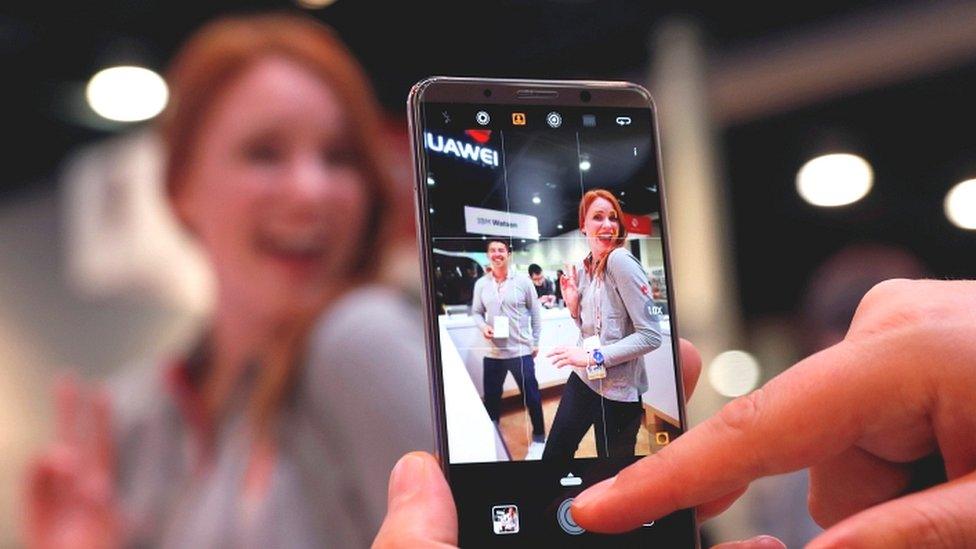
Huawei want to satisfy its customers' thirst for better battery life in smartphones
Spare a thought for the attendees of the CES tech show who decided to briefly leave their phones in charging towers.
The devices got locked inside when a power cut plunged the exhibition hall into darkness.
Having to constantly keep personal devices charged is a nuisance we are all, by now, familiar with - even device-makers are frustrated.
During Huawei's press conference, the firm's chief executive acknowledged, external that battery life was among the top complaints customers make about smartphones.
He went on to explain that this is why Huawei's new Mate 10 Pro included a bigger battery than many rivals - at 4,000 milliamp-hour (mAh) capacity.
Seeing the world's largest consumer electronics trade show briefly hobbled by a blackout perhaps makes gadgets with especially long battery life seem all the more appealing.
If so, a new flurry of devices at CES this year are offering to outlast their power-hungry brethren.
Take Lenovo's Miix 630 tablet, a two-in-one that comes with a keyboard.
It is meant to last up to 20 hours on a single charge thanks to is power-efficient Qualcomm processor, a chip initially designed for mobile devices.
That claim from Lenovo hasn't yet been tested, but it's a tantalising promise of a more battery-confident future.
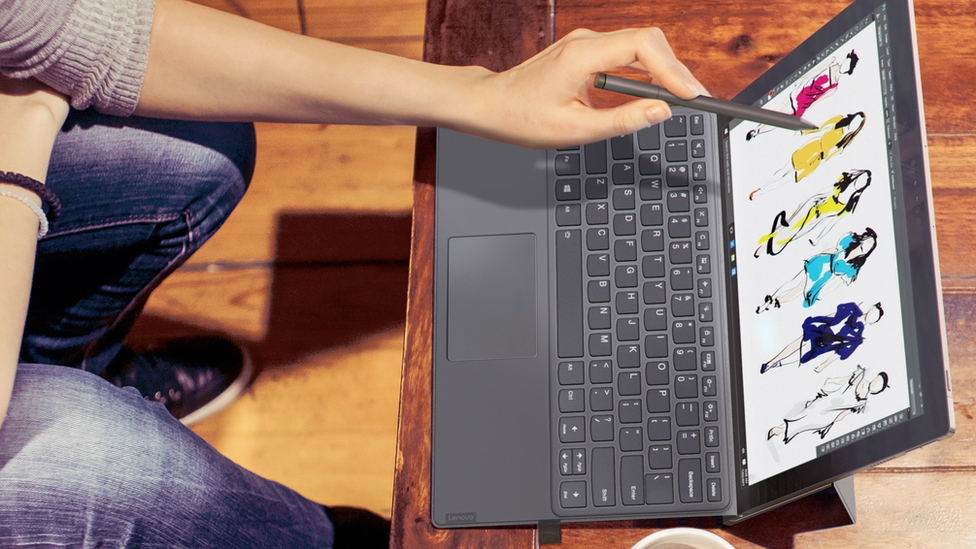
Lenovo claims its two-in-one device, somewhere between a laptop and a tablet, last for 20 hours on a single charge
Qualcomm has been working on improving efficiency in the various components that it provides to the makers of consumer gadgets.
At the company's press conference this week, one executive said that the firm's new Bluetooth system-on-chip slashed power usage by 65%.
As a result, wireless headphones could last nearly three times as long, external on a single charge, he suggested.
Another firm making similar advancements, this time for chips used in so-called internet-of-things devices, is Sigma Designs.
It announced that its latest series of processors, the Z-Wave 700 line, could allow things like wi-fi connected sensors embedded in furniture and walls to last 10 years on one coin cell battery.

Powering through CES
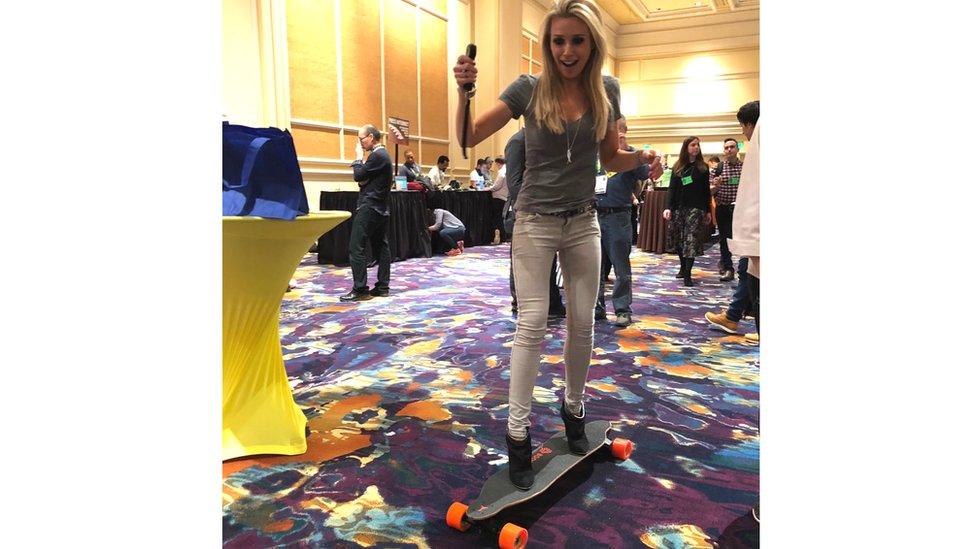
Even the skateboards run on electricity at CES...
If there's anywhere that tests the lifespan of a battery-powered device, it's CES itself.
There's often a race to plug in at the few available charging points and visitors to the tech show often find themselves texting last minute rendez-vous details to colleagues as their phones die.
BBC Click's Lara Lewington says keeping her phone charged up has been "a nightmare".
"It's in a case which should give it two full charges but inevitably something goes wrong," she explains.
"I'm constantly using the internet so that's draining the battery.
"When you're busy running around a chaotic place trying to get loads done, you're struggling to power your phone so you get paranoid about using it."
If only gadgets had as much energy as CES attendees.

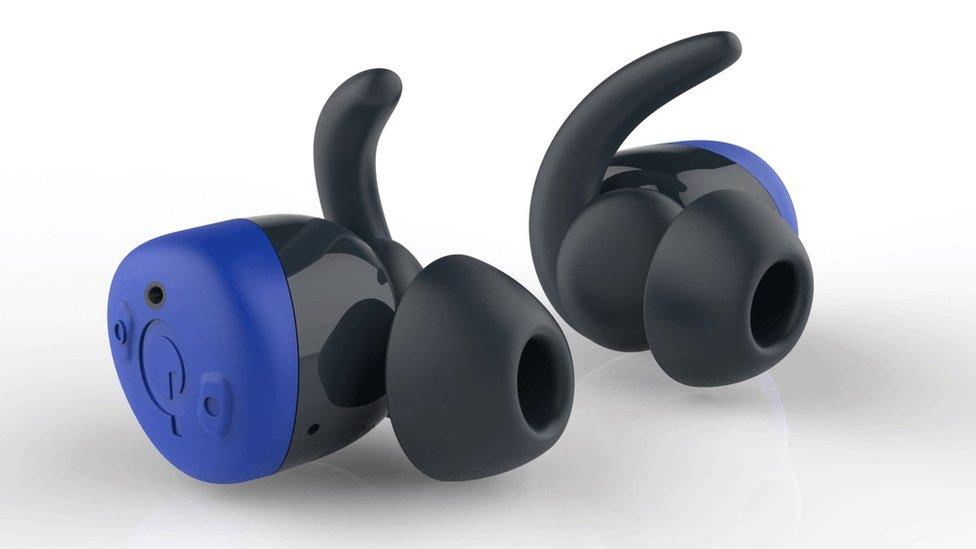
Qualcomm says wireless earbuds using its Bluetooth chips could last three times as long on the same charge
For Ben Wood, an analyst at CCS Insight, the irony of all this is that while battery life may be improving in some gadgets, the batteries themselves aren't.
"To make things last longer you design around [the battery], you design processors or screens that draw less power," he explained.
He added that PC makers such as Lenovo and HP were drawing inspiration from smartphones when thinking about how to make tablets and laptops less power-hungry.
Smartphones, of course, have for the last 10 years or so been pushed to the limit in terms of efficiency since they must rely on relatively small and flat onboard batteries.
For anyone seriously concerned about running out of juice, the latest portable battery packs for recharging devices away from mains supplies were on display at CES this year too.
They included a giant one from Duracell comprising a large acid battery.
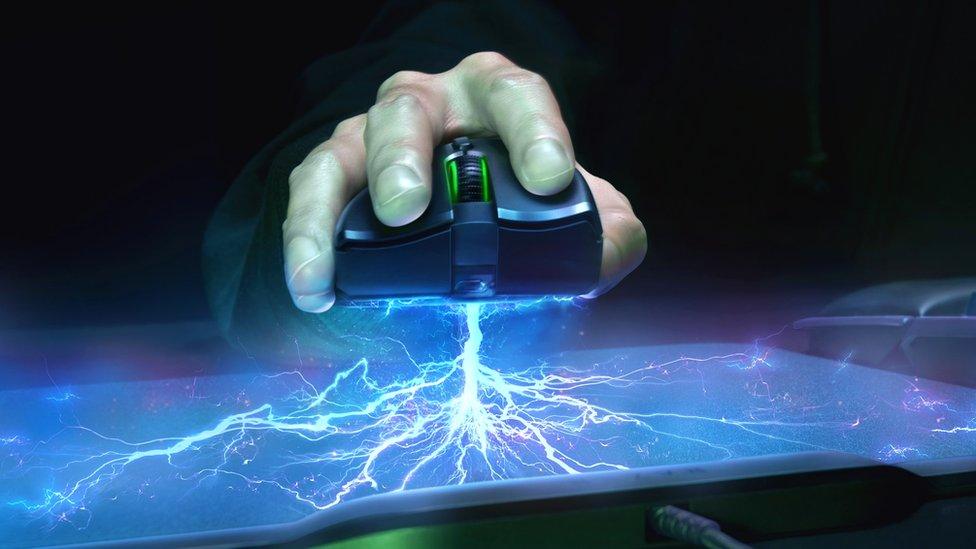
An invisible magnetic field - fancifully represented above - powers the battery-less Mamba mouse
Tech news site Gizmodo, which spotted the device, external on the show floor, calculated that it could recharge an iPhone X more than 48 times.
Finally, PC gaming hardware specialist Razer has come up with an interesting way of powering their new wireless mouse - take the battery out entirely.
It is exhibiting a wired mouse mat that generates a magnetic field, which powers electronics inside the Mamba mouse directly.
"While other companies have attempted to do wireless charging for mice, they have been unable to achieve true wireless power as their mice still need a battery to be charged," said chief executive Min-Liang Tan.
No wonder Razer is proud of itself - tech firms are desperate to free us from the chore of regularly re-charging batteries because they know it could result in a far greater appreciation of their products, according to Ben Wood.
"This is the Holy Grail," he said.
"There's this constant race to see who can optimise the power consumption while at the same time deliver new capabilities."
- Published1 December 2017
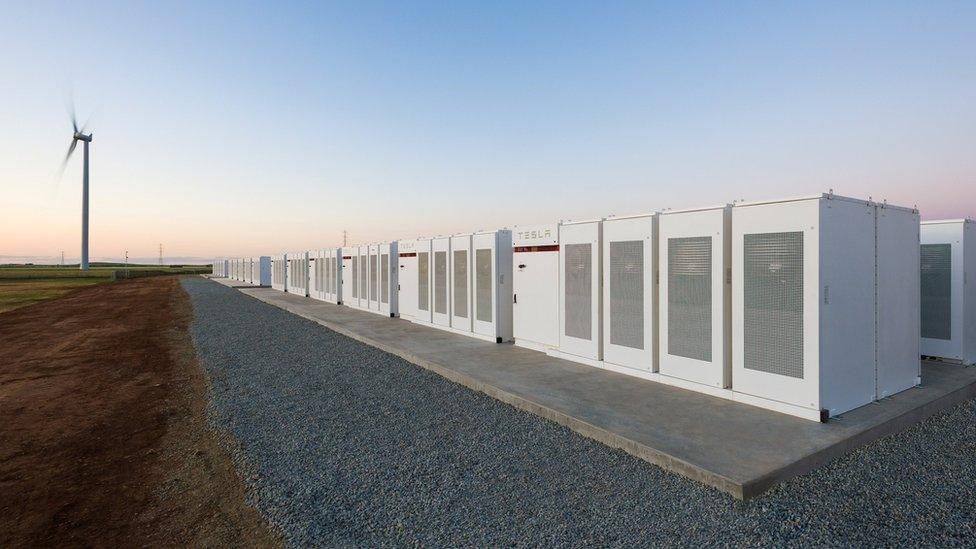
- Published6 October 2017
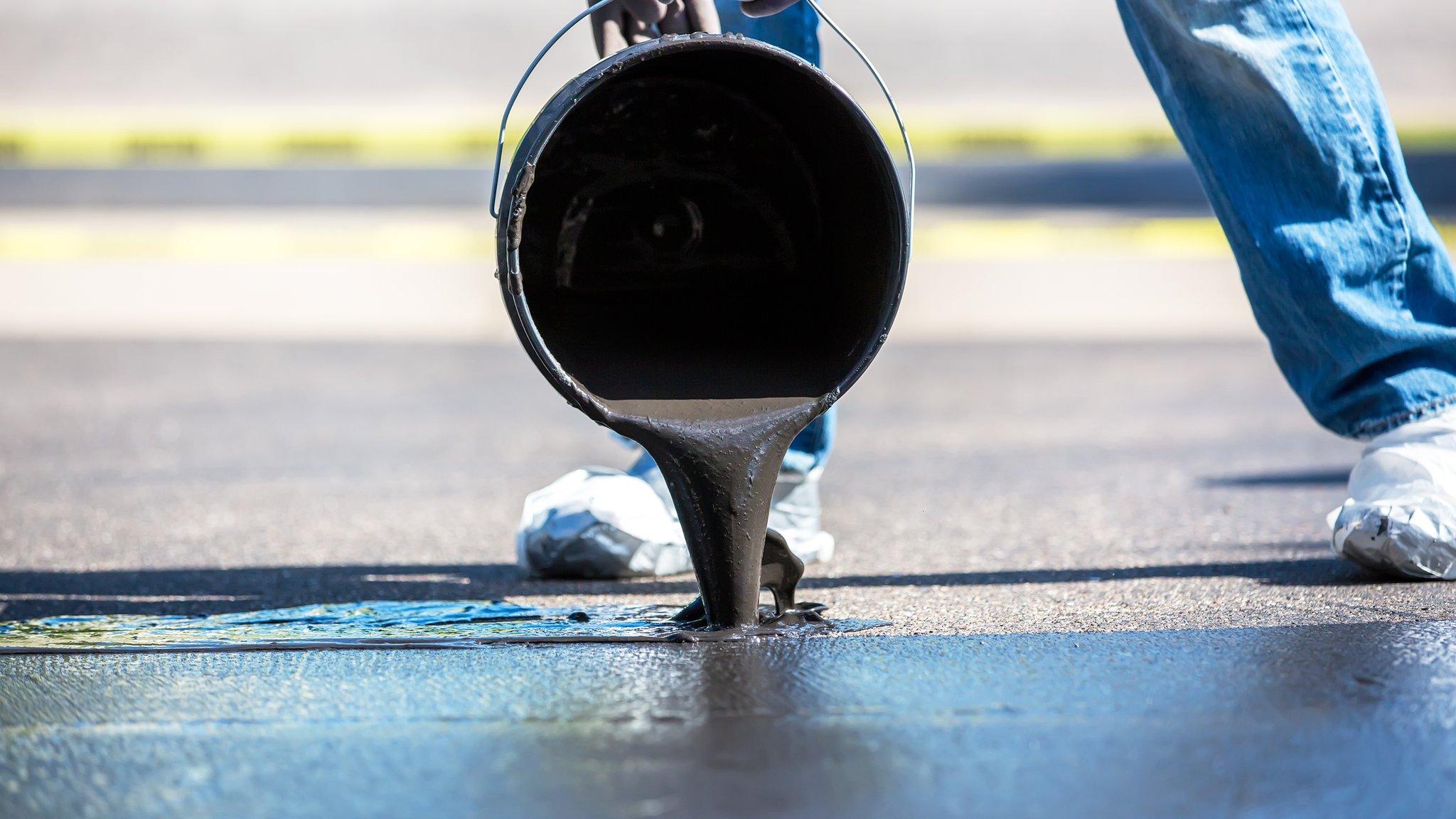
- Published7 September 2017
